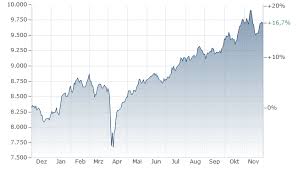
Introduction to the FTSE 100 Index
The FTSE 100 Index, often referred to as the “Footsie,” is a vital benchmark for the UK stock market, representing the 100 largest companies listed on the London Stock Exchange. It serves as an indicator of the UK’s economic health and is closely watched by investors, analysts, and economists. The performance of the FTSE 100 can significantly influence investment decisions and is often used as a reference point for other markets.
Recent Performance of the FTSE 100
As of October 2023, the FTSE 100 has seen a notable recovery following a tumultuous period influenced by global economic conditions and inflationary pressures. The index is currently trading at approximately 7,500 points, reflecting a year-on-year increase of around 10%. This rebound can be attributed to factors such as stabilising commodity prices, a resurgence in consumer confidence, and a robust performance from key sectors including energy, finance, and consumer goods.
In recent months, specific companies within the FTSE 100 have driven growth, including tech giants and energy firms adapting to the evolving market landscape. For instance, Shell and BP, major players in the energy sector, have reported substantial profits as demand for oil and gas surged. Such performances not only boost the index but also strengthen investor sentiment overall.
Implications for Investors
The FTSE 100 Index is not just a measure of corporate health but also serves as a crucial investment tool. Many UK pension funds and investment vehicles use the index to evaluate performance and aid in portfolio management. Furthermore, the stability and growth of the FTSE 100 often attract foreign investment, bolstering the UK’s position as a global financial hub.
With the UK government focusing on economic growth and resilience, analysts predict that the FTSE 100 will continue to flourish if underlying economic conditions remain favourable. However, potential challenges loom, including geopolitical tensions, changes in monetary policy, and inflation worries. Investors must stay vigilant as they navigate the complexities of the market.
Conclusion
The FTSE 100 Index plays an essential role in shaping investor strategies and measuring the economic landscape of the UK. As it continues to evolve, both opportunities and risks accompany its trajectory. By understanding the trends and movements of this index, readers and investors can better prepare for the financial decisions they face in a dynamic market environment.
You may also like

Understanding Tax: Its Importance and Recent Changes

Current Insights on Shell Share Price
